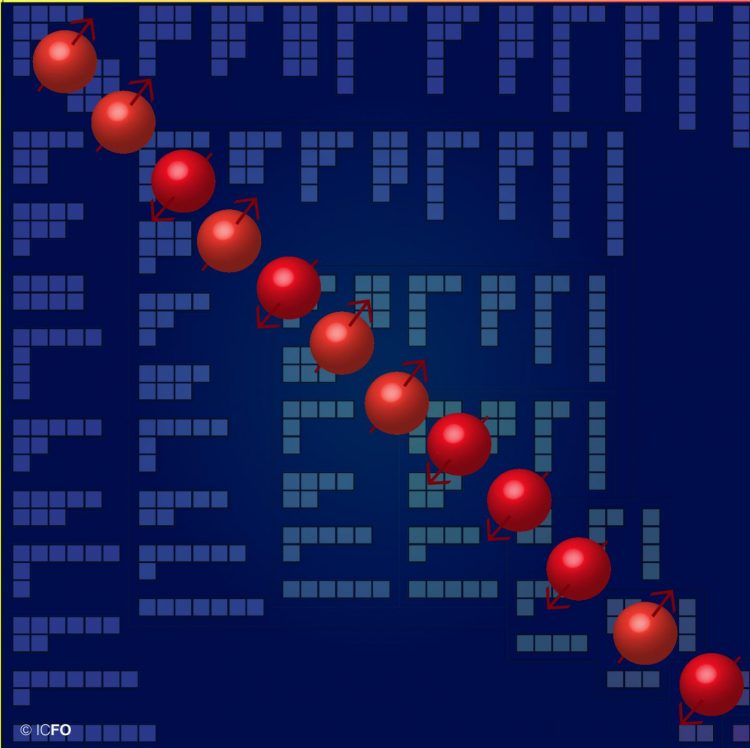Spin glass physics with trapped ions

Solving Number partitioning with spin glass models. Credit: ICFO
One of the most striking discoveries of quantum information theory is the existence of problems that can be solved in a more efficient way with quantum resources than with any known classical algorithm.
Number-partitioning, which refers to the simple task of dividing a set of numbers into two groups of equal sums is, in fact, a very difficult problem to solve with classical computers.
Often, such problems can be related to a physical model, which then allows for solving the problem by finding the minimum energy state of the model. Here, an important role is played by spin glass models, that is, models describing a collection of tiny magnets interacting with each other in a random fashion.
In the recent work published in Nature Communications, Dr. Tobias Grass, David Raventós, Dr. Christian Gogolin, led by ICREA Prof. at ICFO Dr. Maciej Lewenstein, in collaboration with Dr. Bruno Julià-Díaz from the University of Barcelona (UB), lay the theoretical foundations for a quantum simulation of spin glass physics with trapped ions.
The idea proposed by the team of researchers shows how to tackle the problem of number partitioning by applying a strategy known as “quantum annealing”. This is done by initially applying a strong magnetic field which is then switched off slowly during the simulation. In this way, the quantum state is deformed until it matches with the desired solution. This can be faster than other methods to solve the problem.
The implementation of this approach is possible with state-of-the-art techniques for trapping, cooling, and manipulating ions. As Dr. Grass clearly states, “In the past, we have seen quantum simulations which solve a problem from quantum physics. In our approach, the same techniques are used to solve a problem from computer science. The results of our study opens a new path and brings us a step closer to the development of a quantum computer.”
###
Reference: “Quantum annealing for the number-partitioning problem using a tunable spin glass of ions” Tobias Graß, David Raventós, Bruno Juliá-Díaz, Christian Gogolin & Maciej Lewenstein, http://www.
Media Contact
All latest news from the category: Materials Sciences
Materials management deals with the research, development, manufacturing and processing of raw and industrial materials. Key aspects here are biological and medical issues, which play an increasingly important role in this field.
innovations-report offers in-depth articles related to the development and application of materials and the structure and properties of new materials.
Newest articles
Faster, more energy-efficient way to manufacture an industrially important chemical
Zirconium combined with silicon nitride enhances the conversion of propane — present in natural gas — needed to create in-demand plastic, polypropylene. Polypropylene is a common type of plastic found…

Energy planning in Ghana as a role model for the world
Improving the resilience of energy systems in the Global South. What criteria should we use to better plan for resilient energy systems? How do socio-economic, technical and climate change related…

Artificial blood vessels could improve heart bypass outcomes
Artificial blood vessels could improve heart bypass outcomes. 3D-printed blood vessels, which closely mimic the properties of human veins, could transform the treatment of cardiovascular diseases. Strong, flexible, gel-like tubes…





















